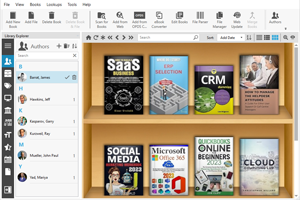4 books on Insurance Software [PDF]
Updated: January 07, 2024 | 15 |
Books on Insurance Software are invaluable resources for Insurance Software startups, offering comprehensive insights and strategic guidance into the complex world of insurance technology. These resources provide a deep understanding of insurance processes, policy management, claims processing, and regulatory compliance, equipping startups with the knowledge and best practices necessary to design, develop, and operate efficient and compliant software solutions. They delve into essential aspects like underwriting, risk assessment, and customer relationship management, empowering startups to create platforms that enhance the efficiency and effectiveness of insurance operations. Furthermore, these books often explore emerging trends such as insurtech and blockchain applications in insurance, ensuring that startups remain innovative and adaptive in a rapidly evolving industry.
1. Applications, Challenges, and Opportunities of Blockchain Technology in Banking and Insurance
2022 by Gupta, S. L., Kansra, Pooja, Kukreja, Gagan

The ongoing wave of technological transformation has profoundly impacted business models across diverse industries, offering new avenues to bolster competitive advantages and spur economic advancement. "Applications, Challenges, and Opportunities of Blockchain Technology in Banking and Insurance" delves into the swift adoption of blockchain technology in the banking and insurance sectors, examining its capacity to construct open and trustworthy network models. This book explores how blockchain optimizes transactions and operations, facilitating access to information while reducing communication costs and minimizing data transfer errors. Encompassing studies on various banking and insurance industries, the text delves into the application of blockchain technology to streamline transactions, ensuring convenience, simplicity, and security. Covering critical topics like cryptocurrency, digital transformation, and the role of blockchain in small and medium-sized enterprises, this authoritative reference source is indispensable for policymakers, government officials, higher education students and educators, libraries, banking and insurance professionals, as well as researchers and academicians.
Download PDF
2. FinTech as a Disruptive Technology for Financial Institutions
2019 by Rafay, Abdul

"FinTech as a Disruptive Technology for Financial Institutions" explores the transformative impact of financial technology (FinTech) on financial institutions, addressing the dual challenge of maintaining the financial health of businesses and providing accessible banking options to individuals. This essential reference source delves into the emerging disruptive nature of FinTech in financial transactions, heralding a paradigm shift in banking behaviors and offering improved traceability of funds against specific assets. The book covers a range of applications of FinTech across small, medium, and large businesses, considering cultural and religious perspectives. With research spanning machine learning, market development, cryptocurrency, financial security, blockchain, and financial technology, this resource caters to bankers, business managers, economists, computer scientists, academicians, researchers, financial professionals, and students seeking comprehensive insights into the evolving landscape of financial technology.
Download PDF
3. Future Automation: Changes To Lives And To Businesses
2018 by Timothy E Carone

In the book "Future Automation: Changes To Lives And To Businesses," Timothy Carone explores the prevailing apprehension about future risks and emphasizes the inevitability of autonomous systems becoming an integral part of our lives. These systems, ranging from driverless cars to drones and high-frequency trading systems, are progressively taking over critical processes in both business and daily life. The book defines autonomous systems as the integration of sensors or the Internet of Things for data collection, big data for storage and processing, and artificial intelligence for decision-making and action. It also discusses the inclusion of actuators, such as motors, in certain autonomous systems like robots, driverless cars, and unmanned drones. Carone delves into the disruptions caused by these autonomous systems, emphasizing the pivotal role of analytics, often overlooked in comparison to advances in AI and IoT, in providing the content for informed decision-making by AI. The book forecasts the pervasive impact of autonomous systems across various industries and predicts the imminent manifestation of these changes in the years to come.
Download PDF
4. Insurance Technology Handbook: The New Partnership
1998 by Jessica Keyes

The "Insurance Technology Handbook: The New Partnership" serves as a comprehensive desk reference designed for IT professionals within the insurance sector. Offering insights into the latest technologies, the handbook aims to enhance efficiency and predictive capabilities in the industry. Encompassing various topics, including imaging modeling, management systems, customer systems, Internet commerce, and addressing common challenges like the year 2000 problem, this resource caters to technology management professionals and those in financial services management. Geared towards individuals involved in the development and implementation of cutting-edge technology, the handbook provides valuable information for all levels of expertise within the insurance and financial services domain.
Download PDF
How to download PDF:
1. Install Google Books Downloader
2. Enter Book ID to the search box and press Enter
3. Click "Download Book" icon and select PDF*
* - note that for yellow books only preview pages are downloaded
1. Applications, Challenges, and Opportunities of Blockchain Technology in Banking and Insurance
2022 by Gupta, S. L., Kansra, Pooja, Kukreja, Gagan

The ongoing wave of technological transformation has profoundly impacted business models across diverse industries, offering new avenues to bolster competitive advantages and spur economic advancement. "Applications, Challenges, and Opportunities of Blockchain Technology in Banking and Insurance" delves into the swift adoption of blockchain technology in the banking and insurance sectors, examining its capacity to construct open and trustworthy network models. This book explores how blockchain optimizes transactions and operations, facilitating access to information while reducing communication costs and minimizing data transfer errors. Encompassing studies on various banking and insurance industries, the text delves into the application of blockchain technology to streamline transactions, ensuring convenience, simplicity, and security. Covering critical topics like cryptocurrency, digital transformation, and the role of blockchain in small and medium-sized enterprises, this authoritative reference source is indispensable for policymakers, government officials, higher education students and educators, libraries, banking and insurance professionals, as well as researchers and academicians.
Download PDF
2. FinTech as a Disruptive Technology for Financial Institutions
2019 by Rafay, Abdul

"FinTech as a Disruptive Technology for Financial Institutions" explores the transformative impact of financial technology (FinTech) on financial institutions, addressing the dual challenge of maintaining the financial health of businesses and providing accessible banking options to individuals. This essential reference source delves into the emerging disruptive nature of FinTech in financial transactions, heralding a paradigm shift in banking behaviors and offering improved traceability of funds against specific assets. The book covers a range of applications of FinTech across small, medium, and large businesses, considering cultural and religious perspectives. With research spanning machine learning, market development, cryptocurrency, financial security, blockchain, and financial technology, this resource caters to bankers, business managers, economists, computer scientists, academicians, researchers, financial professionals, and students seeking comprehensive insights into the evolving landscape of financial technology.
Download PDF
3. Future Automation: Changes To Lives And To Businesses
2018 by Timothy E Carone

In the book "Future Automation: Changes To Lives And To Businesses," Timothy Carone explores the prevailing apprehension about future risks and emphasizes the inevitability of autonomous systems becoming an integral part of our lives. These systems, ranging from driverless cars to drones and high-frequency trading systems, are progressively taking over critical processes in both business and daily life. The book defines autonomous systems as the integration of sensors or the Internet of Things for data collection, big data for storage and processing, and artificial intelligence for decision-making and action. It also discusses the inclusion of actuators, such as motors, in certain autonomous systems like robots, driverless cars, and unmanned drones. Carone delves into the disruptions caused by these autonomous systems, emphasizing the pivotal role of analytics, often overlooked in comparison to advances in AI and IoT, in providing the content for informed decision-making by AI. The book forecasts the pervasive impact of autonomous systems across various industries and predicts the imminent manifestation of these changes in the years to come.
Download PDF
4. Insurance Technology Handbook: The New Partnership
1998 by Jessica Keyes

The "Insurance Technology Handbook: The New Partnership" serves as a comprehensive desk reference designed for IT professionals within the insurance sector. Offering insights into the latest technologies, the handbook aims to enhance efficiency and predictive capabilities in the industry. Encompassing various topics, including imaging modeling, management systems, customer systems, Internet commerce, and addressing common challenges like the year 2000 problem, this resource caters to technology management professionals and those in financial services management. Geared towards individuals involved in the development and implementation of cutting-edge technology, the handbook provides valuable information for all levels of expertise within the insurance and financial services domain.
Download PDF
How to download PDF:
1. Install Google Books Downloader
2. Enter Book ID to the search box and press Enter
3. Click "Download Book" icon and select PDF*
* - note that for yellow books only preview pages are downloaded


